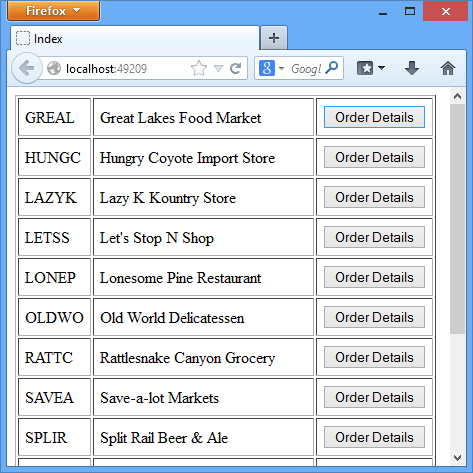greyapalon
Json Date Serialization Mvc


When an application includes a timestamp, it's usually reading it from the current machine. If you're in New York, the timestamp is EST; if you're in California, it's Pacific time. In some cases, though, you'll need the app to be consistent with the server time, so that it's consistent everywhere around the world. For example, if you're scheduling a one-day sale, you may want to ensure that the time is static for one time zone; otherwise users will be able to access the sale in their own time zone across the globe. This post looks at how to maintain a consistent, server-based timestamp in ASP.NET MVC web apps using JSON text. As we know, text is used for transferring data between the server and the client.
We always use the text in. Json.NET is a popular high-performance JSON framework for.NET to serialize the data into text in JSON format and read the data from a JSON format text. It's used by default for JSON serialization in ASP.NET MVC 6 and ASP.NET Web API. JSON Serialization Before an object is transferred to the client, it has to be serialized into JSON text, which will then be parsed into a client object on the client side. For a DateTime object with different Kinds, it has to be serialized into different texts with Json.NET: Server (+07:00) Serialization Text Client (+08.00) 2017/1/25 07:00:00 (DateTimeKind.Unspecified) '2017-01-25T07:00:00' 2017/1/25 07:/1/25 07:00:00 (DateTimeKind.Utc) '2017-01-25T07:00:00Z' 2017/1/25 15:/1/25 07:00:00 (DateTimeKind.Local) '2017-01-25T07:00:00+07:00:00' 2017/1/25 08:00:00 In this example, the serialization text keeps the original date and time text, and ends with the time zone, including all the information about the server DateTime object. Using new Date([serialization text]), we can then parse the serialization text into the client object.
However, the Client column shows that only the Unspecified DateTime object keeps the same date and time text as the server. Both the UTC DateTime and the Local objects have different string representations, and they even show different texts in machines with different time zones. Nofx So Long And Thanks For All The Shoes Zipper on this page. Deserialization Before a client object is transferred to the server, it has to be serialized into a text; then, on the server, the text is deserialized into an object.
Michael John Episcope 7-May-13 18:18 7-May-13 18:18 Hi, From Section 3: JSON Serialization and Deserialization on DateTime, regarding the optional part like '+0500', sometimes I get a negative value for the operator like '-0500', which will not be handled by your regular expression pattern: @' /Date (( d+) + d+ ) /' I would like to confirm what that optional part is. Is it the time zone? And when do I get a positive or a negative operator for that part? I'm always getting a positive operator on my local machine, and a sometimes a negative operator on our cloud server. That's why I guessed it is the time zone. The optional part in the serialized value is the timezone offset from UTC.
Feb 03, 2012 I recently used the DataContractJsonSerializer to serialize a class. Download Windows 7 Supreme Edition Sp1 X64 X86. I noticed that for a DateTime field, the deserialized result appeared identical to the. The data in the data parameter must be serializable. The JavaScriptSerializer class is used to serialize the object. The result object that is prepared by this method.
Comments are closed.